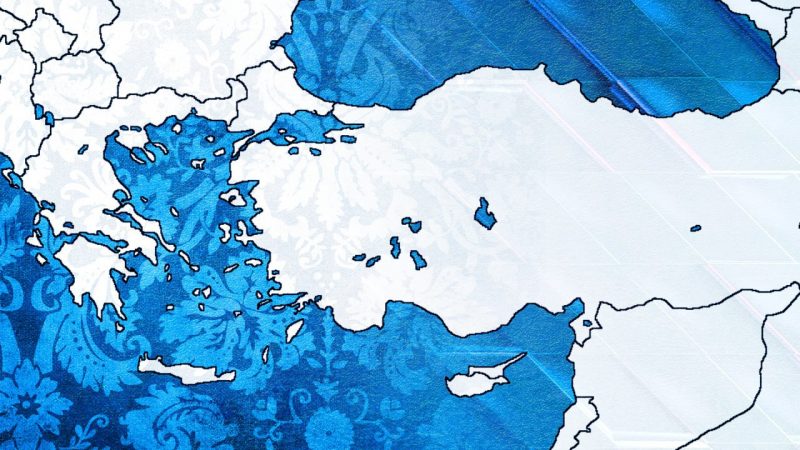On 22nd November 2020, morning hours, German Sachsen Class (Type 124) multi-purpose frigate Hamburg operating under the tactical command of Greek Commodore T Micropoulos, in the EU-led Operation Irini has interrogated the Turkish container vessel MV Roseline-A carrying food and paint supplies to Libya in the area 100 miles off the Benghazi Coast. The ship had departed from Istanbul to go Misratah port of Libya. The ship belongs to and she is operated by the well-respected Arkas Holding Company. Although the captain was fully cooperative, declaring there was no contraband against the UN resolutions, at 1745 Hamburg’s naval assault team boarded the vessel through helicopter fast rope operations. Officers and crew were deactivated through force and ship was searched and controlled until next morning 0938 hours.
International law governs the conditions to board a merchant ship operating in the high seas which is the case for the Turkish ship. Foreign merchant ships cannot be boarded unless they are involved in slavery, piracy, unlawful radio broadcasting; or save for special conditions provided by treaties or UN Security Council resolutions adopted under Chapter VII. Hamburg’s intervention to Roseline-A is an intervention to the freedom of navigation in high seas, as well as to Turkey’s sovereignty as the flag-state. It is unlawful unless it can be justified with special conditions provided by treaties or UN Security Council resolutions adopted under Chapter VII. To this end, Germany authorities indicated that the ship was searched for suspected arms cargo and invoked UN Security Council resolution 2292(2016), which was extended for an additional 12 months by UN Security Council resolution 2526(2020), to support their claims. Adopted under Chapter VII of the UN Charter, the said resolutions may indeed provide “special conditions”, namely an exception to the prohibition of interventions. That said, specific conditions provided in the resolution is diligently observed to render an otherwise unlawful intervention lawful.
In this regard, Operative paragraph 3 (and below) of the Resolution 2292(2016) requires two conditions to be fulfilled for a lawful intervention. These conditions are that a) the intervening state or international organization has “reasonable grounds to believe are carrying arms or related materiel to or from Libya”; and that the intervening state or international organization makes b) “good-faith efforts to first obtain the consent of the vessel’s flag State prior to any inspections”. None of these two conditions were observed.
First, while “reasonable grounds” may leave some discretion to the searching state or international organization, it does not give a carte blanche. It requires making a thorough factual assessment, based on credible intelligence, the track-record / reputation of the shipping company, or activities of the vessel. Moreover, it is the duty of the searching authority -be it a state or an international organization- to document and demonstrate the grounds of suspicion in the request for search to be submitted to the flag state. This is not only a duty under the Security Council resolution, but also best practices, as evidenced by the guidelines of UN Office on Drugs and Crime. Given that neither Germany nor the EU demonstrated credible -or any- intelligence on Roseline-A; that the ship was operated by a company with a spotless track-record; that no suspicious activities of the vessel were recorded, there was no “reasonable ground” for inspection. In this regard, it is particularly important that after 16 hours of search, no arms were found. Germany and/or EU boarded the ship for the solely because it did fly the Turkish flag. Second, and most importantly, under Resolution 2292, the searching authorities are required to make good faith efforts to obtain the flag-state’s permission before (not after) the boarding and search. To put it simply, the rule is “make sure you do all you can to get consent before and then search”. It is not “go ahead if the flag-state does not immediately declines the requests or before it even respond”. In this regard, the requests should be made by the competent authority of the searching state or the organizations to the competent authority of the flag-state. Evidently, this requires that either the German Embassy or the EU Delegation (the head of which is also a German career diplomat) in Ankara to contact Turkish Foreign Ministry to request permission. In other words, Irini Operation Authorities must have contacted their Ministry of Foreign Affairs or their Embassies at Ankara to obtain official consent of Turkish MFA. Moreover, “making good-faith efforts” is plural, requiring the searching authority to do more than a mere formal request. Neither Germany, nor the EU did make any statement regarding authority which requested the permission from the Turkish government, or which branch of Turkish government they sent the request. Turkish MFA indicates that these procedures were not followed. From vague and unsubstantiated statements of various German ministries as well as EU sources, it seems that the request may not have filed through competent channels, that no sustained efforts or diplomatic contacts were made, and that Germany or EU did not wait long enough for Turkey to even review a request. Consequently, on these two grounds, UN Security Council Resolution 2292 is violated. The outcome was that a defenseless merchant ship was occupying for almost 16 hours with armed Seal teams threatening the captain and crew at gunpoint. The authority that was granted under the resolution was abused by Germany or the EU for a political grandstanding against Turkey in the wider Eastern Mediterranean dispute. Therefore, the acts of Germany and/or EU are not only in violation of freedom of navigation and of Turkey’s sovereignty, but they do also warrant a proper investigation by the UN Security Council.
However, the overall damage this incident caused is beyond our imagination with legal, strategic and even geopolitical repercussions. Under these conditions it can be said that:
- This intervention with freedom of navigation and with Turkey’s sovereignty shall pave the way for an enlarging distrust between Turkey and European Union.
- It shall damage the NATO solidarity too since the ship involved (German), The Tactical Commander OTC-IRINI (Greek Admiral) and the Operational Commander/EUNAVFOR-IRINI (Italian Admiral) authorized the operation were belonging to the NATO states. Where is the trust and solidarity?
- It distorted the very basis of freedom of navigation dating back to 16th century, Hugo Grotius era through forceful boarding and searching an armless merchant ship.
- This is a very serious hostile act of EU against Turkey which cannot be resolved easily. In the minds and hearts of the Turkish people the effect of this hostility will be similar of American assault against Turkish Special Forces at Iraq/Sulaymaniyah on 4th July 2003.
- Since EU acted on suspicion without firm and undeniable operational intelligence, this will open the way and set examples for conducting bogus interventions and boarding’s for other players in the oceans. So, EU has the privilege for the opening Pandoro’s Box.
- This intervention is not done with a “public purpose”. While it does not entail “obtaining profits”, it is done for “private gains” for Germany and EU, with the instigation and manipulation of a Greek commodore. It is, in this regard, akin to a modern form of “privateering”, in other words, piracy. This shall have negative and disturbing effects over the Eastern Mediterranean and Aegean disputes, destroying mutual trust, good faith and confidence among the related parties. As to be remembered that Turkey had cancelled the 21st July NAVTEX of Oruçreis through a request of German Chancellor Merkel and opened the doors for Turkish-Greek Exploratory Talks. However Greek side exploited the cancellation, and they concluded a so-called delimitation agreement with Egypt. That had undermined the Germany’s umpireship and good office status. Now Turkey has second strike from Germany. These amateurish acts will yield no tangible added values to neither the regional stability nor international order.









Evet ilgileniyorum
Excellent as always statement for those amature öpen ses pirates….
Date should be 22nd November 2020 rather than 22nd October.
Thanks Admiral. Bravo Zulu
Ömer Sevdik
Thank you for this valuable note which shows the discouraging state of internations relations in the Mediterrenean in out case. As you stress at various occasions Greece intends to take revenge, regrettably with the support of France and Germany, two countries which lack wise and responsible leadership. They are unaware of the reaction they are bound to get from Turkey which is more determined than ever to preserve and enhance its independence.
Excellent Article
This iş excellency of you. Commander greetings and regards.